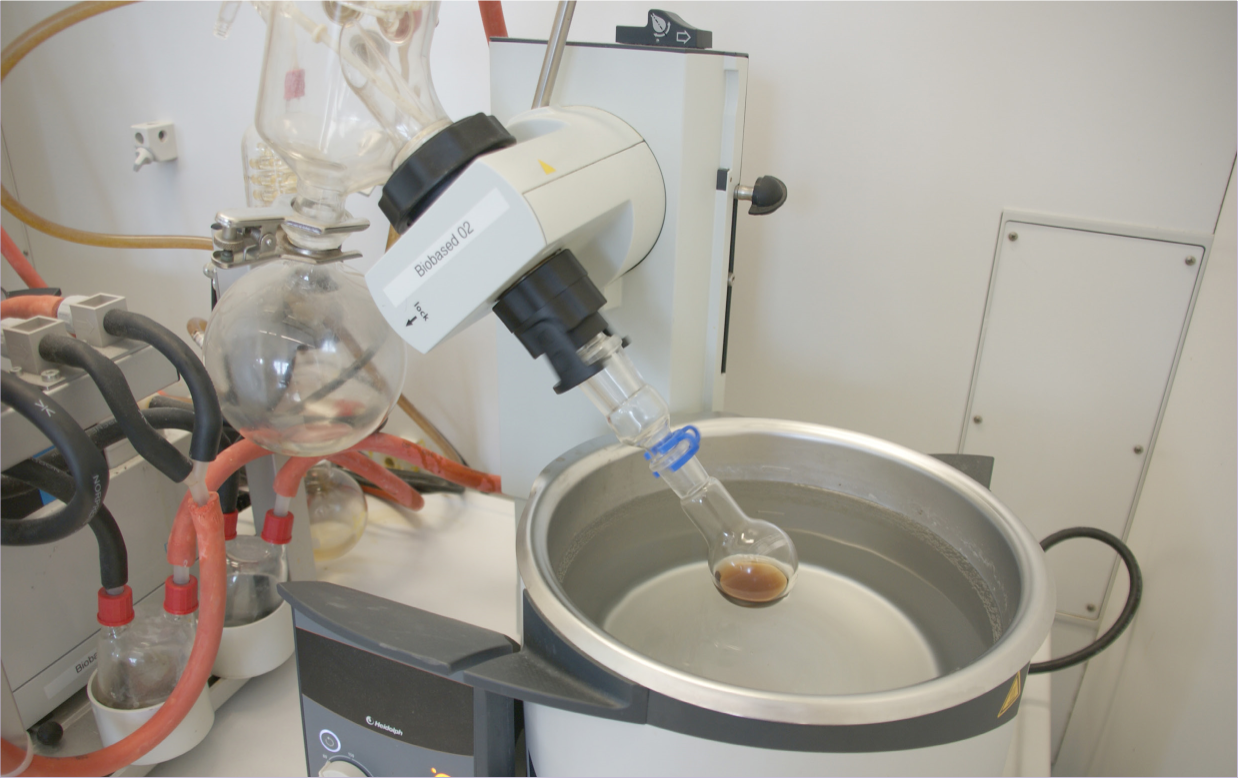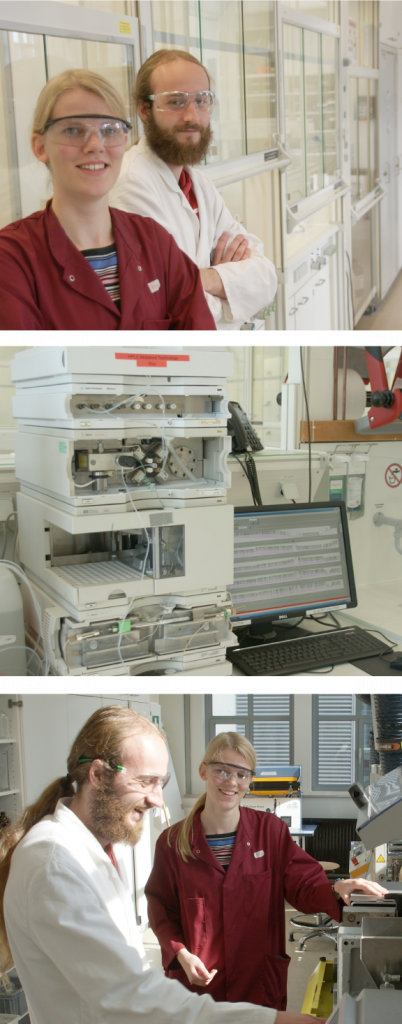
It bubbles, it hisses, it turns, and impressive graphs and tables appear on the computer screen next to it. At least for a layman. For Romy van Dongen, Douwe Duijn and the many students we meet, this is everyday business. We are at the Biobased Lab, part of Avans University of Applied Sciences in Breda. This is where education and research come together around biobased issues.
Romy is Technical Education Assistant (TOA) at the lab. She coordinates the work of colleagues and students, who have to use various pieces of equipment and other supplies, and she oversees safety in the lab. It is no coincidence that she works precisely in an environment where biobased is the benchmark.
Sustainability is high on her mind. “We’re working on green chemistry here, doing things that haven’t been done before and developing products to compete with fossil-based products that have had 100 years of development.”
INTERFACES EDUCATION AND RESEARCH
The beauty here is that we have equipment that allows us to go through all the steps of making a product. From making a synthesis in the fume hood to make a biobased plastic, to processing that product in the injection molding machine and performing analysis on all of that process.” Often, the research questions come from CoE BBE projects, and it’s also students from different programs who are looking at parts of the solution. Douwe Duijn, a researcher with the Biobased Building Blocks & Products lectorate, adds: “Every teaching period there are more than 10 trainees working here who are working on different projects and learning from each other in them. Whether it’s about ‘Structural Health in Biobased Constructions’ or ‘Cashing Cashews‘; projects often have common ground on topics you can’t think of beforehand.” The students and interns themselves also see the added value of the collaboration between research and education. They feel and appreciate that they are making a real contribution to a real project, instead of working on an experiment from a theory book.
SEAWEED MOLECULES
The ZCORE project, in which Douwe himself is active, attempts to find or make alternative molecules (or very specifically bio-aromatics) from seaweed, to replace fossil-based molecules. “And actually we are trying to make an even better molecule than the fossil alternative, because the 1-to-1 replacement is often much more expensive than what is currently being worked with. By adding an extra value to the molecule, we make it more interesting to still choose biobased,” he says
Want to know more? Then get in touch with Romy van Dongen.

